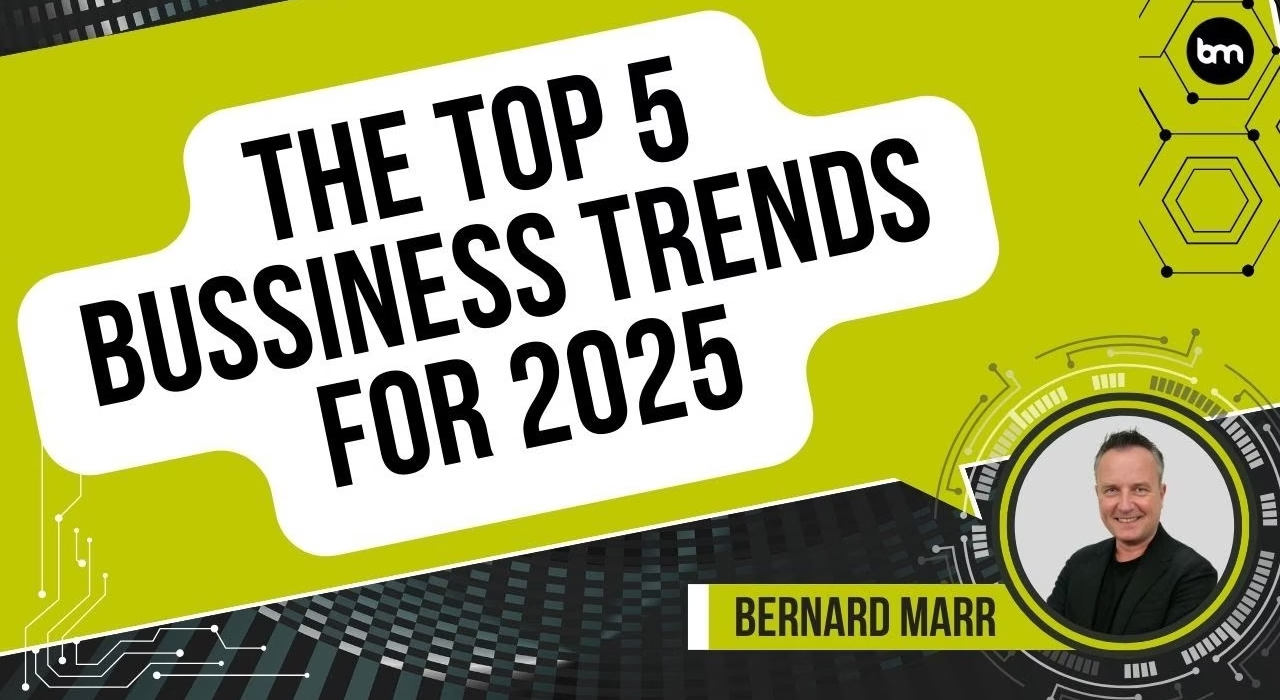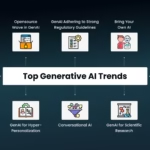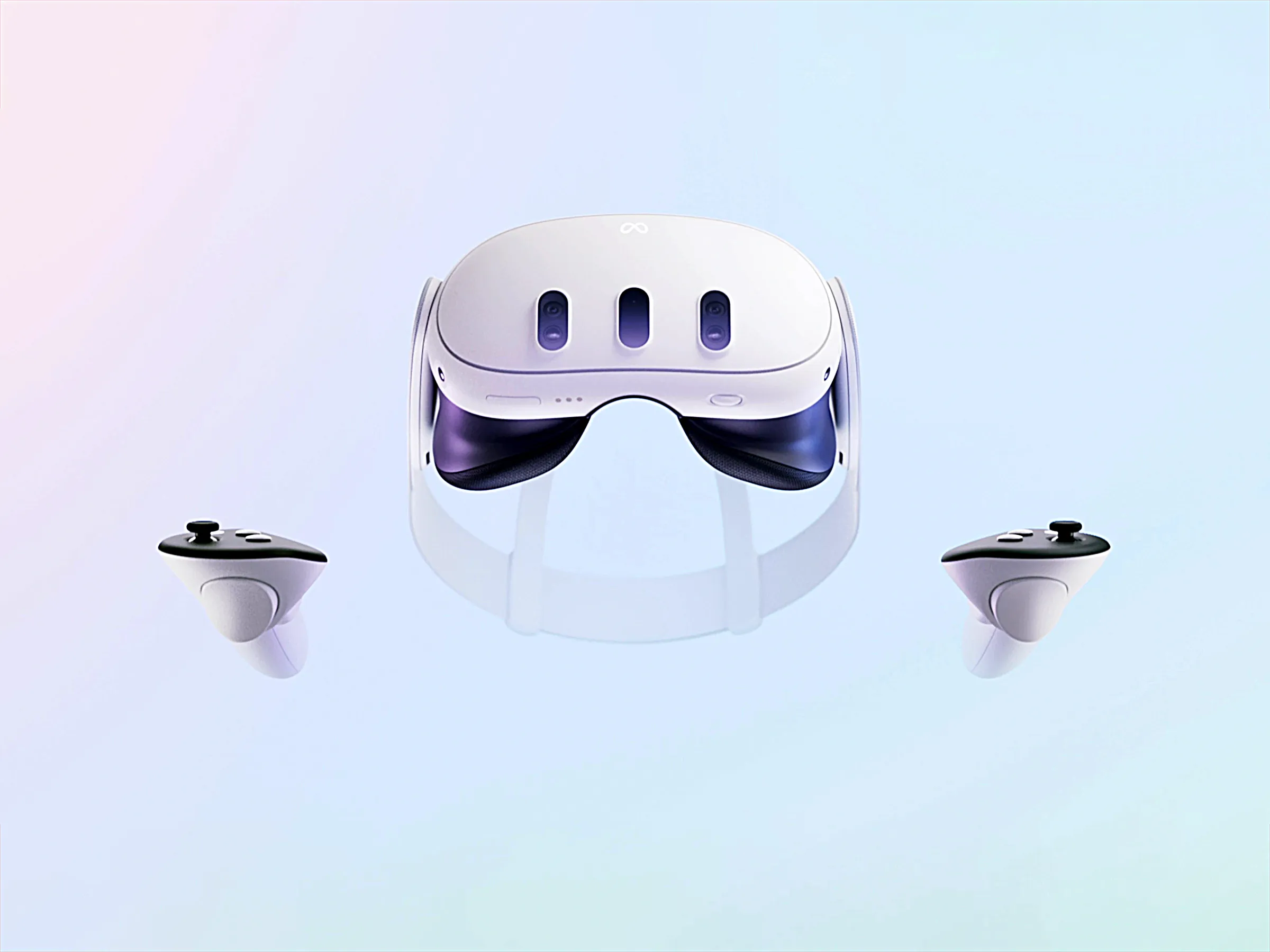Essential Technology Trends for 2025
Estimated reading time: 15 minutes
Key Takeaways
- The pace of technological evolution continues to accelerate, making it crucial for businesses to stay ahead of the curve.
- 2025 will see a significant impact from **Artificial Intelligence (AI)**, particularly **agentic AI** and **generative AI**, transforming business operations and decision-making.
- **Hyperautomation** and AI-driven automation will be central to optimizing complex business processes and workflows.
- **Phygital convergence**, the seamless blend of physical and digital experiences, will become increasingly important for customer engagement and operational flexibility.
- **Sustainability tech** will drive greener operations and enhance supply chain transparency, becoming a key differentiator.
- Next-generation **connectivity** (5G/6G) is foundational for the expansion of IoT and real-time data analytics.
- Robust **cybersecurity** measures, including advancements like digital immune systems, are paramount for resilience.
- Mastery of **data analytics and big data**, powered by AI, is essential for extracting actionable business intelligence.
- Businesses must prioritize agility, invest in AI talent, and foster a culture of experimentation to effectively navigate these trends.
Table of Contents
- Essential Technology Trends for 2025
- Key Takeaways
- The Shifting Tech Landscape: Insights from Industry Leaders
- McKinsey Top Tech Trends 2025 Explained
- Gartner Emerging Technology Trends 2025 Analysis
- Forbes Top 10 Tech Trends 2025 Overview
- The Central Role of AI: Deloitte’s Perspective on 2025 Tech Trends
- Deloitte AI Driven Technology Trends 2025
- Synthesizing the Essential Trends for Business
- Identifying Overlapping Themes
- Navigating the Future: Strategic Implications for Your Business
- Strategic Imperatives
- Operational Shifts
- Investment and Adoption Considerations
- The Cruciality of Agility
- Conclusion and Call to Action
The technological landscape is in a constant state of flux. What was revolutionary yesterday is commonplace today, and what seems cutting-edge now will likely be foundational tomorrow. For businesses, staying ahead isn’t just an advantage; it’s a necessity for survival and growth. Understanding and strategically adopting the **essential technology trends 2025 for business** will be paramount for success in the coming year. This post dives deep into the most impactful advancements, synthesizing expert analysis from leading global firms like McKinsey, Gartner, Deloitte, and Forbes to provide a comprehensive overview. We will explore what McKinsey calls the “Top Trends in Tech 2025,” analyze Gartner’s “Emerging Technology Trends 2025,” examine Deloitte’s insights on “AI Driven Technology Trends 2025,” and review Forbes’ “Top 10 Tech Trends 2025 Overview.”
The Shifting Tech Landscape: Insights from Industry Leaders
The insights from major consultancies and publications offer a clear vision of where technology is heading and its implications for businesses worldwide.
McKinsey Top Tech Trends 2025 Explained
McKinsey’s “Technology Trends Outlook 2025” highlights several pivotal areas that are set to redefine industries. Their analysis emphasizes technologies that offer substantial competitive advantages and operational efficiencies.
A cornerstone of McKinsey’s findings is the ascendance of **Artificial Intelligence (AI)**, with a particular focus on **agentic AI**. This is not just about AI performing tasks, but AI systems capable of autonomous goal pursuit. Imagine AI agents that can proactively identify problems, devise solutions, and execute them without constant human intervention. This level of autonomy promises to radically reshape business operations, from customer service and R&D to strategic planning and execution, significantly boosting productivity and enabling entirely new business models. McKinsey’s emphasis on agentic AI underscores a future where intelligent systems act as partners, not just tools. You can explore McKinsey’s full report here: [https://www.mckinsey.com/~/media/mckinsey/business%20functions/mckinsey%20digital/our%20insights/the%20top%20trends%20in%20tech%202025/mckinsey-technology-trends-outlook-2025.pdf](https://www.mckinsey.com/~/media/mckinsey/business%20functions/mckinsey%20digital/our%20insights/the%20top%20trends%20in%20tech%202025/mckinsey-technology-trends-outlook-2025.pdf) and further insights at [https://www.mckinsey.com/capabilities/mckinsey-digital/our-insights/the-top-trends-in-tech](https://www.mckinsey.com/capabilities/mckinsey-digital/our-insights/the-top-trends-in-tech).

Another key trend identified by McKinsey is **Application-Specific Semiconductors**. These are custom-designed chips engineered for particular tasks, most notably AI workloads. Unlike general-purpose processors, these specialized chips can perform specific computations with far greater speed and energy efficiency. This is crucial for deploying advanced AI models and enabling computationally intensive applications, leading to significant performance improvements and the creation of novel functionalities across various sectors. This trend is also detailed in the McKinsey outlook: [https://www.mckinsey.com/~/media/mckinsey/business%20functions/mckinsey%20digital/our%20insights/the%20top%20trends%20in%20tech%202025/mckinsey-technology-trends-outlook-2025.pdf](https://www.mckinsey.com/~/media/mckinsey/business%20functions/mckinsey%20digital/our%20insights/the%20top%20trends%20in%20tech%202025/mckinsey-technology-trends-outlook-2025.pdf).
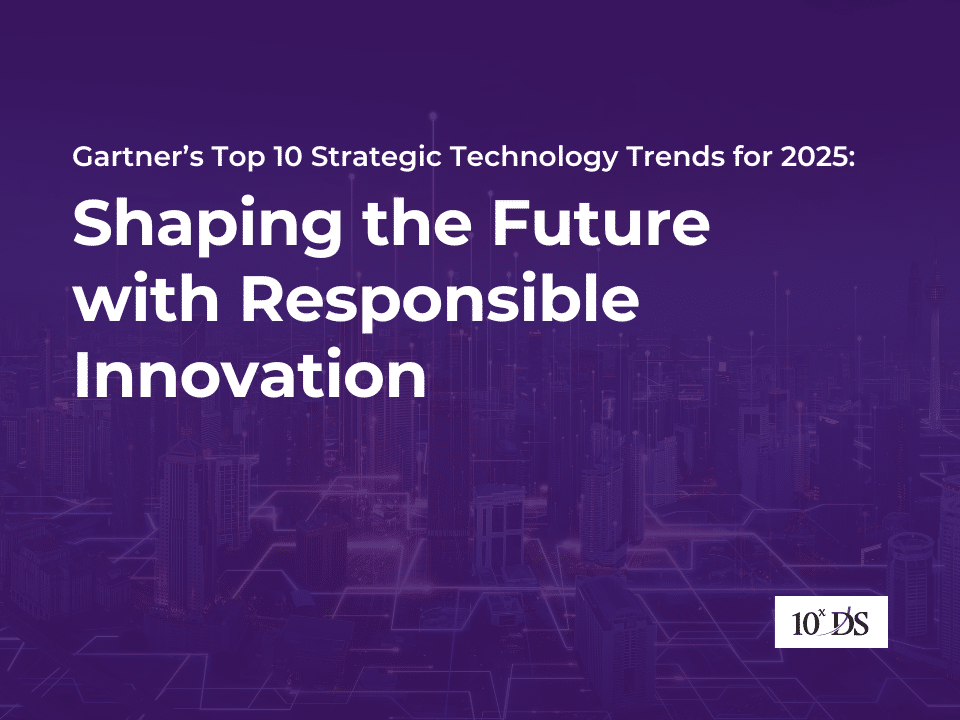
Furthermore, McKinsey highlights the importance of **Advanced Connectivity**, including **5G/6G** technologies. These are not just about faster internet speeds but are foundational enablers for a connected world. They facilitate the real-time data flow required for sophisticated AI analytics, the widespread adoption of the Internet of Things (IoT), and the development of immersive digital experiences. The increased bandwidth, lower latency, and massive device support offered by these networks will unlock new possibilities in everything from autonomous vehicles to smart cities. This critical infrastructure is discussed in their report: [https://www.mckinsey.com/~/media/mckinsey/business%20functions/mckinsey%20digital/our%20insights/the%20top%20trends%20in%20tech%202025/mckinsey-technology-trends-outlook-2025.pdf](https://www.mckinsey.com/~/media/mckinsey/business%20functions/mckinsey%20digital/our%20insights/the%20top%20trends%20in%20tech%202025/mckinsey-technology-trends-outlook-2025.pdf).
Gartner Emerging Technology Trends 2025 Analysis
Gartner, a leading research and advisory firm, focuses on technologies that are on the cusp of significant market impact. Their analysis of **emerging technologies** for 2025 points to trends that will fundamentally reshape business capabilities.
Gartner identifies **hyperautomation** as a key trend. This refers to the end-to-end automation of complex business processes, leveraging a combination of technologies like Robotic Process Automation (RPA), AI, machine learning, and process mining. Hyperautomation goes beyond simple task automation to enable intelligent, adaptive workflows that can learn and improve over time. Businesses embracing hyperautomation can expect significant gains in efficiency, accuracy, and agility. This trend is crucial for driving operational excellence in complex environments.

The expanded application of **generative AI** in core business functions is another critical trend from Gartner. While AI has been transformative, generative AI’s ability to create new content, code, designs, and data opens up new frontiers. Gartner anticipates its use in everything from personalized marketing and product development to scientific research and software engineering, driving innovation and efficiency. The firm also points to the development of **digital immune systems**. This concept focuses on building systems that can autonomously detect, diagnose, and respond to disruptions, bolstering cybersecurity and overall organizational resilience in an increasingly complex threat landscape. For more on these trends, see: [https://www.fruitiongroup.com/resources/blog/the-top-tech-trends-of-2025–the-ultimate-guide/](https://www.fruitiongroup.com/resources/blog/the-top-tech-trends-of-2025–the-ultimate-guide/). Gartner emphasizes that staying attuned to these emerging technologies allows businesses to anticipate market shifts and build sustainable competitive advantages.
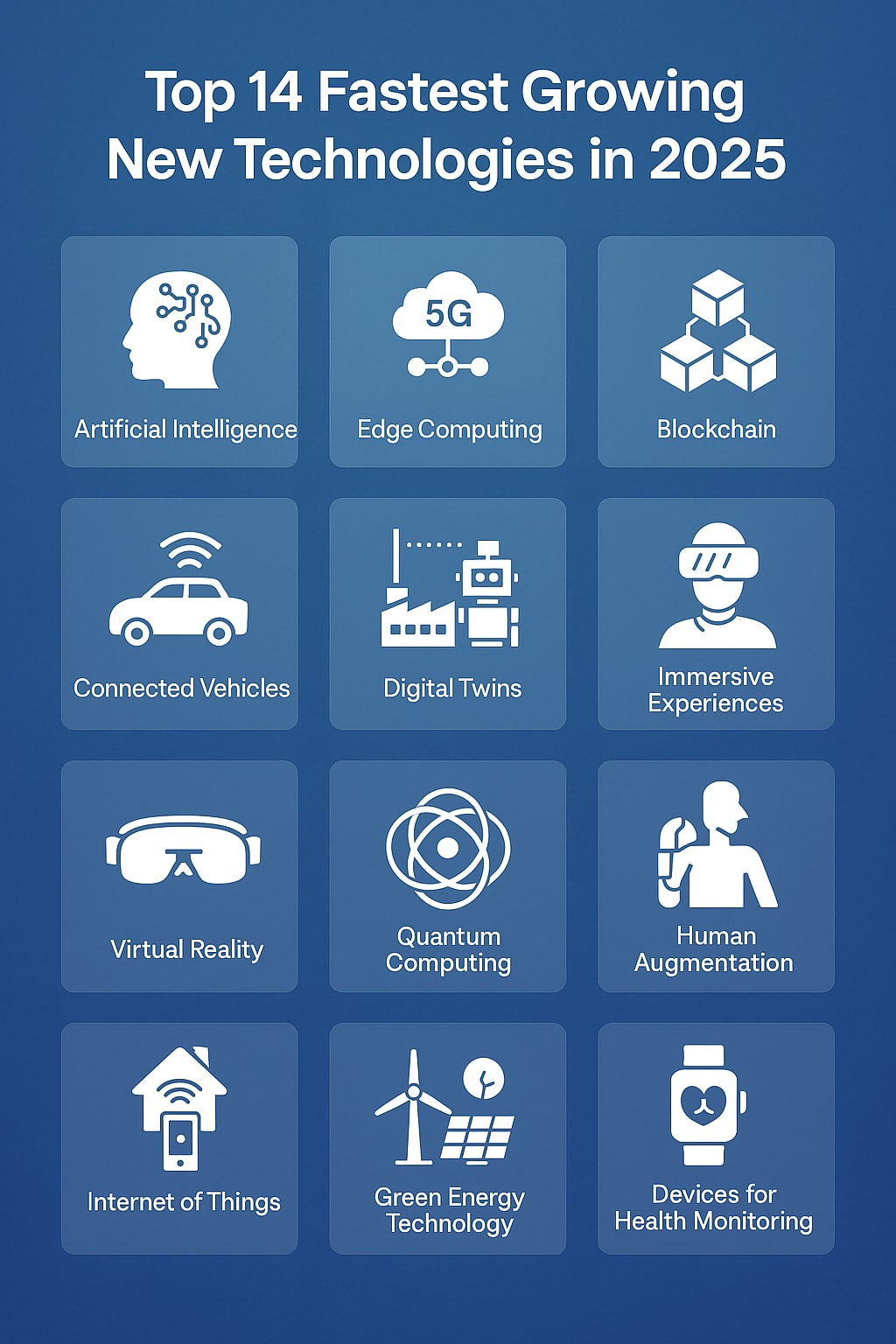
Forbes Top 10 Tech Trends 2025 Overview
Forbes consistently provides an accessible yet insightful overview of the technological advancements poised to make waves. Their “Top 10 Tech Trends 2025” list often focuses on practical applications and their direct impact on business strategies.
Forbes highlights the pervasive integration of **Generative AI** and machine learning across a multitude of business functions. This trend underscores AI’s move from a specialized tool to a fundamental component of everyday operations, promising unprecedented efficiency gains in content creation, customer interaction, and data analysis. However, Forbes also notes the accompanying challenges related to governance, ethics, and the need for robust oversight, making responsible AI deployment a critical focus. This is further detailed in analyses of AI’s impact: [https://www.penbrief.com/ai-driven-emerging-tech-innovations-2025](https://www.penbrief.com/ai-driven-emerging-tech-innovations-2025).

**Sustainability Tech** emerges as a significant trend, as businesses increasingly recognize the imperative for environmentally responsible operations. Forbes details how innovations are not only driving greener practices and reducing carbon footprints but also enhancing supply chain transparency and sustainability reporting. This aligns with growing consumer and investor demand for corporate environmental responsibility. Discover more about this crucial area: [https://www.penbrief.com/revolutionary-sustainable-computing-greener-future](https://www.penbrief.com/revolutionary-sustainable-computing-greener-future).
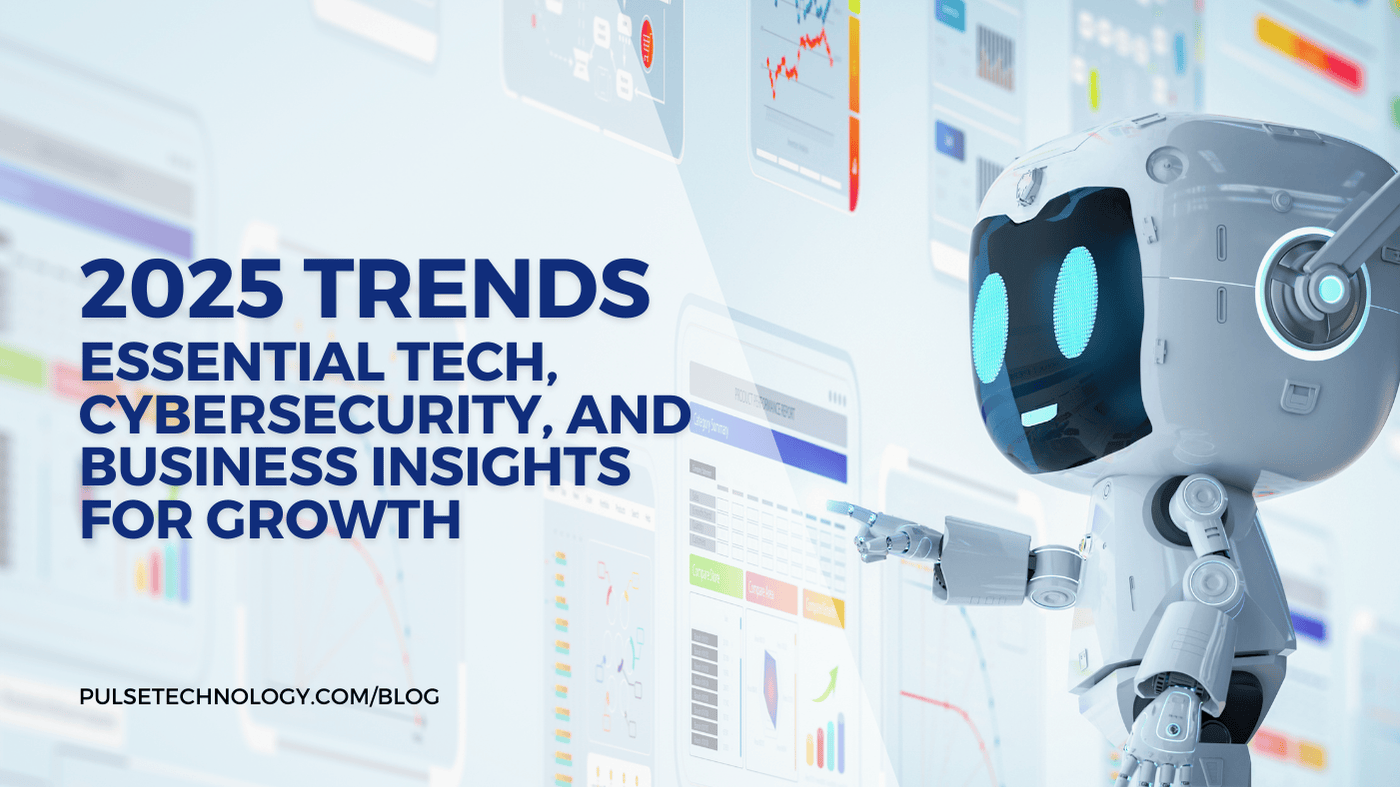
The concept of **Phygital Convergence** is also prominent. This trend describes the seamless blending of physical and digital experiences, facilitated by technologies such as Augmented Reality (AR), Virtual Reality (VR), and the Internet of Things (IoT). Phygital experiences can revolutionize customer engagement, offer immersive training opportunities, and create more dynamic and responsive operational environments. Examples range from AR-enhanced retail experiences to virtual collaboration spaces. Insights can be found here: [https://www.fruitiongroup.com/resources/blog/the-top-tech-trends-of-2025–the-ultimate-guide/](https://www.fruitiongroup.com/resources/blog/the-top-tech-trends-of-2025–the-ultimate-guide/) and [https://aquent.com/blog/5-technology-trends-shaping-the-business-world-in-2025](https://aquent.com/blog/5-technology-trends-shaping-the-business-world-in-2025).
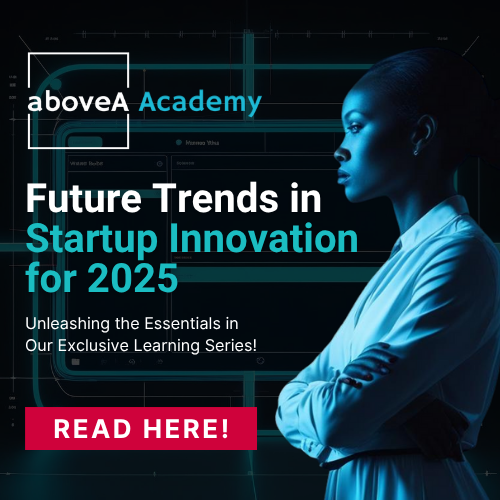
Forbes’ actionable advice for businesses includes prioritizing investments in AI talent, developing robust proprietary data strategies to leverage unique insights, and integrating digital transformation efforts with sustainability goals. These strategic directives emphasize a holistic approach to technology adoption.
The Central Role of AI: Deloitte’s Perspective on 2025 Tech Trends
Deloitte’s analysis of **AI-Driven Technology Trends 2025** places AI not just as a trend, but as a foundational technology that underpins and accelerates many other advancements. Their perspective is crucial for understanding how AI will be woven into the fabric of business operations.
Deloitte AI Driven Technology Trends 2025
Deloitte views AI as a pivotal force, essential for unlocking the potential of other technological innovations in 2025. This broad adoption means that AI mastery is no longer optional for businesses seeking to lead. Their research emphasizes AI’s role in enhancing decision-making, automating complex tasks, and driving strategic insights. The full scope of their analysis can be found at: [https://www.deloitte.com/us/en/insights/topics/technology-management/tech-trends.html](https://www.deloitte.com/us/en/insights/topics/technology-management/tech-trends.html).
Key AI applications highlighted by Deloitte include:
-
Generative AI: Deloitte recognizes generative AI’s profound impact on content creation, code generation, and design processes. Its ability to produce human-like text, images, and even sophisticated code is set to transform marketing, product development, and software engineering, offering significant productivity boosts and enabling new forms of creativity. This is a field of rapid advancement, as discussed in: [https://www.penbrief.com/how-generative-ai-changing-creative-work](https://www.penbrief.com/how-generative-ai-changing-creative-work).
-
AI-Driven Automation: This encompasses the sophisticated application of AI to **hyperautomation**. Deloitte stresses how AI enables not just the automation of repetitive tasks but also the automation of complex decision-making processes. This leads to maximized productivity, reduced human error, and the creation of more agile and responsive business models. Businesses are increasingly relying on AI to streamline workflows and improve operational efficiency, as explored by Capgemini: [https://www.capgemini.com/insights/research-library/top-tech-trends-2025/](https://www.capgemini.com/insights/research-library/top-tech-trends-2025/) and also in Deloitte’s own insights: [https://www.deloitte.com/us/en/insights/topics/technology-management/tech-trends.html](https://www.deloitte.com/us/en/insights/topics/technology-management/tech-trends.html).
-
Data Analytics & Big Data: AI is the engine that makes sense of the ever-increasing volumes of data businesses generate. Deloitte emphasizes how AI empowers real-time analysis of massive datasets, extracting actionable business intelligence. This capability allows organizations to identify trends, predict outcomes, and make proactive strategic adjustments, moving from reactive to predictive decision-making. This synergy between AI and data is critical, as also noted by Capgemini: [https://www.capgemini.com/insights/research-library/top-tech-trends-2025/](https://www.capgemini.com/insights/research-library/top-tech-trends-2025/).
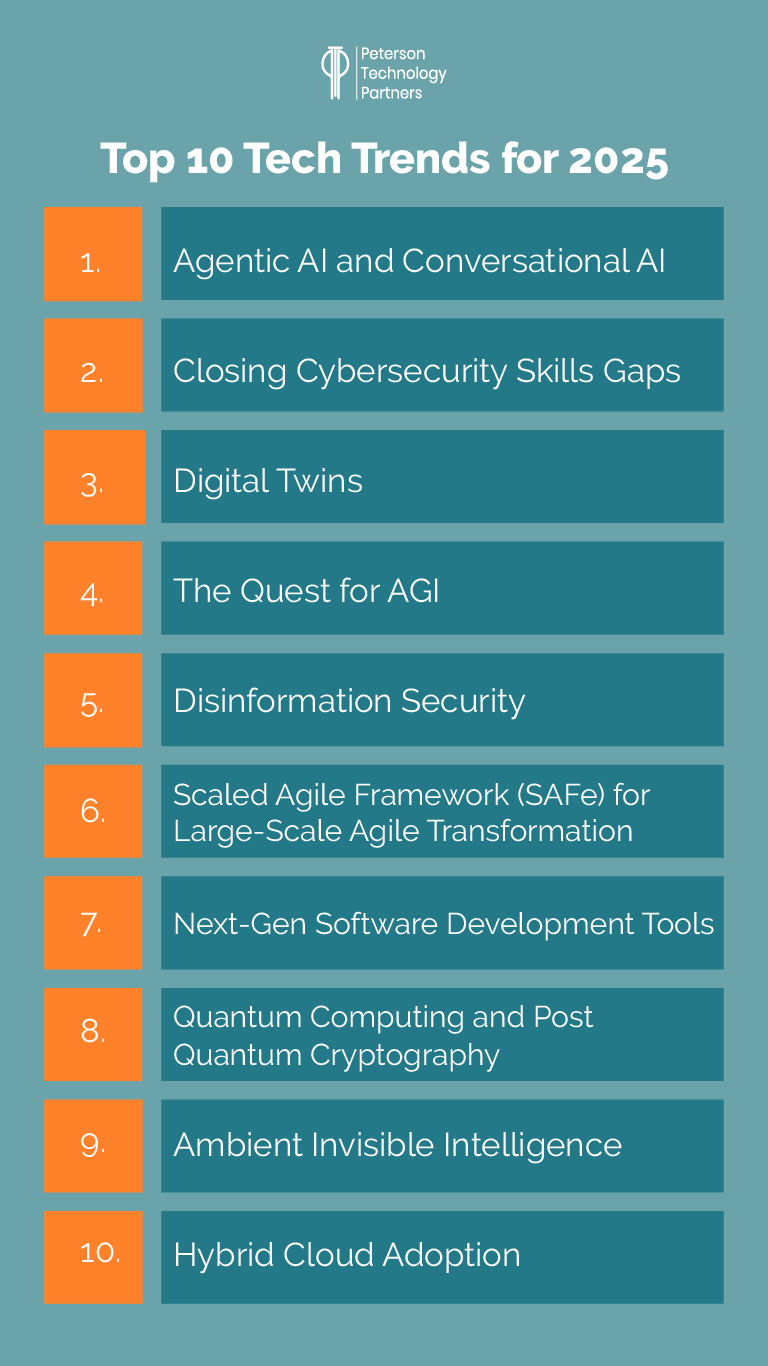
Deloitte’s core message is clear: mastering AI is fundamental for businesses aiming to maintain and grow their competitive edge in 2025 and beyond. The strategic integration of AI is no longer a futuristic concept but an immediate imperative, as highlighted in various analyses: [https://www.penbrief.com/how-ai-is-transforming-businesses-guide](https://www.penbrief.com/how-ai-is-transforming-businesses-guide).
Synthesizing the Essential Trends for Business
By analyzing the insights from McKinsey, Gartner, Deloitte, and Forbes, a clear picture emerges of the most critical **essential technology trends 2025 for business**. These are the advancements that offer the most significant potential for transformation and competitive advantage.
Identifying Overlapping Themes
Several key themes consistently appear across the reports, indicating their broad relevance and impact. The consensus points towards a future heavily influenced by intelligent systems and enhanced connectivity. Here’s a consolidated list of the most impactful and frequently cited trends:
-
AI-driven transformation: This encompasses both the broader adoption of **generative AI** for content and creation, and the rise of **agentic AI** for autonomous operations. The ability of AI to augment human capabilities and automate complex tasks is paramount. Analyses of this trend include: [https://www.penbrief.com/top-ai-trends-to-watch-2025](https://www.penbrief.com/top-ai-trends-to-watch-2025) and [https://www.penbrief.com/how-ai-is-changing-the-world](https://www.penbrief.com/how-ai-is-changing-the-world).
-
Hyperautomation and intelligent workflows: Streamlining business processes through advanced automation, powered by AI and machine learning, is a critical focus for efficiency and agility. This trend is highlighted in comprehensive guides: [https://www.fruitiongroup.com/resources/blog/the-top-tech-trends-of-2025–the-ultimate-guide/](https://www.fruitiongroup.com/resources/blog/the-top-tech-trends-of-2025–the-ultimate-guide/).
-
Phygital (physical-digital) convergence and immersive experiences: The seamless integration of physical and digital realms enhances customer interaction, employee training, and operational flexibility, creating richer user experiences. Insights into this area can be found at: [https://www.fruitiongroup.com/resources/blog/the-top-tech-trends-of-2025–the-ultimate-guide/](https://www.fruitiongroup.com/resources/blog/the-top-tech-trends-of-2025–the-ultimate-guide/).
-
Sustainability technologies and green initiatives: Driven by regulatory pressures, consumer demand, and ethical considerations, technology will play a key role in enabling greener operations and more transparent, sustainable supply chains. Learn more about this vital trend: [https://www.penbrief.com/revolutionary-sustainable-computing-greener-future](https://www.penbrief.com/revolutionary-sustainable-computing-greener-future).
-
Next-generation connectivity (5G/6G): The rollout of advanced wireless technologies is essential for enabling the Internet of Things (IoT), real-time data analytics, and the widespread adoption of other connected technologies. The growth of 5G is a key indicator: [https://www.penbrief.com/5g-connections-2-25-billion-2024](https://www.penbrief.com/5g-connections-2-25-billion-2024).
-
Cybersecurity as a paramount strategic imperative: With increasing digital threats, advanced cybersecurity solutions, including **digital immune systems**, are crucial for protecting data, systems, and business continuity. This remains a critical focus: [https://www.penbrief.com/october-2025-tech-trends-cybersecurity](https://www.penbrief.com/october-2025-tech-trends-cybersecurity).
-
Data mastery: Beyond just collecting data, businesses must focus on privacy, governance, and the strategic utilization of first-party data to derive meaningful insights and maintain customer trust. Protecting personal data is a key aspect: [https://www.penbrief.com/protecting-personal-data-online-guide](https://www.penbrief.com/protecting-personal-data-online-guide).
-
Employee enablement through advanced tools: Technologies like extended reality (XR) are transforming how employees are trained and collaborate, enhancing skills development and team productivity. This is a key area for workforce development: [https://www.fruitiongroup.com/resources/blog/the-top-tech-trends-of-2025–the-ultimate-guide/](https://www.fruitiongroup.com/resources/blog/the-top-tech-trends-of-2025–the-ultimate-guide/).

While these are the most prominent themes, other notable trends are gaining traction or are highly relevant in specific industries. These include advancements in the Metaverse and Web3, the increasing importance of edge computing for real-time processing, the evolution of robotics in various sectors, and the continued development of specialized semiconductors for AI and other high-performance computing needs. These technologies, as detailed in McKinsey’s outlook [https://www.mckinsey.com/~/media/mckinsey/business%20functions/mckinsey%20digital/our%20insights/the%20top%20trends%20in%20tech%202025/mckinsey-technology-trends-outlook-2025.pdf](https://www.mckinsey.com/~/media/mckinsey/business%20functions/mckinsey%20digital/our%20insights/the%20top%20trends%20in%20tech%202025/mckinsey-technology-trends-outlook-2025.pdf) and Capgemini’s research [https://www.capgemini.com/insights/research-library/top-tech-trends-2025/](https://www.capgemini.com/insights/research-library/top-tech-trends-2025/), may become **essential technology trends 2025 for business** in niche or rapidly evolving sectors.
Navigating the Future: Strategic Implications for Your Business
Understanding these trends is the first step; the next is translating that knowledge into effective business strategy. The implications for how businesses operate, invest, and innovate are profound.
Strategic Imperatives
Businesses must strategically prioritize investments in AI and automation. This isn’t just about acquiring new tools, but about fostering organizational agility, cultivating data literacy across all employee levels, and establishing a robust culture of experimentation. The ability to adapt quickly and test new approaches will be critical for effectively leveraging these **essential technology trends 2025 for business**. As suggested by Aquent, agility is key: [https://aquent.com/blog/5-technology-trends-shaping-the-business-world-in-2025](https://aquent.com/blog/5-technology-trends-shaping-the-business-world-in-2025).

Operational Shifts
The operational landscape will evolve significantly. We can expect a greater prevalence of autonomous and data-driven workflows, the seamless integration of blended physical and digital experiences for both customers and employees, and an increased reliance on secure, scalable cloud and edge computing infrastructures to support these advanced capabilities. These shifts are essential for modernizing operations, as discussed in various analyses: [https://www.fruitiongroup.com/resources/blog/the-top-tech-trends-of-2025–the-ultimate-guide/](https://www.fruitiongroup.com/resources/blog/the-top-tech-trends-of-2025–the-ultimate-guide/).
Investment and Adoption Considerations
When approaching technology investment and adoption, businesses must strike a balance. It’s vital to pursue emerging opportunities with enthusiasm but also to consider the practicalities of scalability, seamless integration with existing systems, and crucial ethical considerations, particularly concerning AI and data management. Deloitte’s guidance stresses thoughtful integration: [https://www.deloitte.com/us/en/insights/topics/technology-management/tech-trends.html](https://www.deloitte.com/us/en/insights/topics/technology-management/tech-trends.html), and McKinsey reinforces the importance of strategic deployment: [https://www.mckinsey.com/~/media/mckinsey/business%20functions/mckinsey%20digital/our%20insights/the%20top%20trends%20in%20tech%202025/mckinsey-technology-trends-outlook-2025.pdf](https://www.mckinsey.com/~/media/mckinsey/business%20functions/mckinsey%20digital/our%20insights/the%20top%20trends%20in%20tech%202025/mckinsey-technology-trends-outlook-2025.pdf).
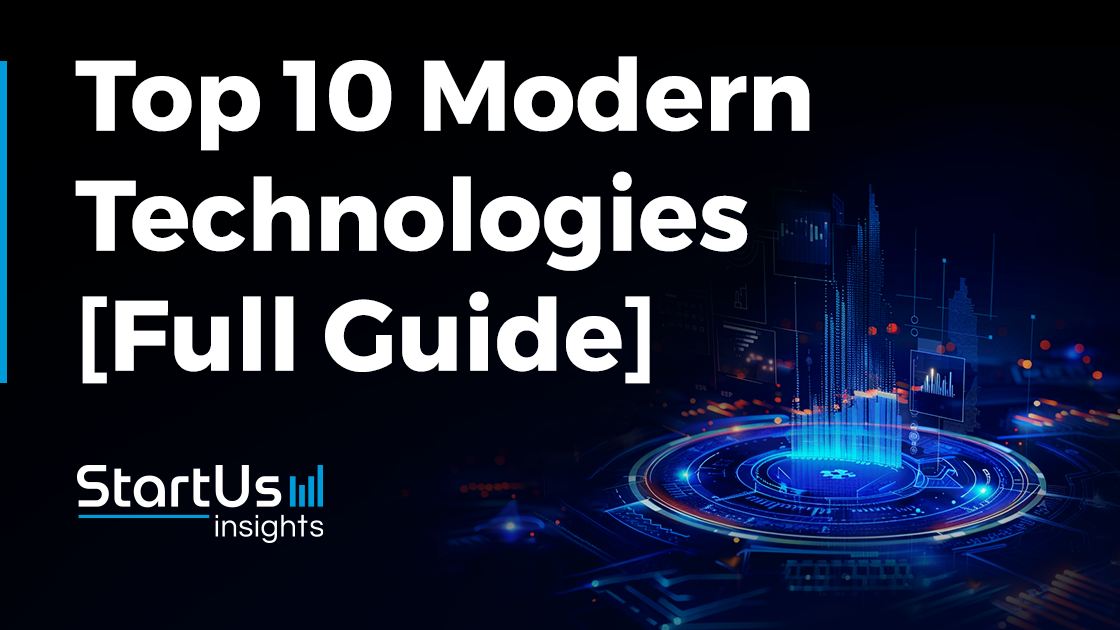
The Cruciality of Agility
Ultimately, the most significant strategic imperative for businesses in 2025 will be agility. The ability to iterate rapidly, embrace experimentation, and pivot in response to new technological possibilities is fundamental for gaining and maintaining a competitive edge. Those organizations that can adapt quickly will be best positioned to capitalize on the opportunities presented by these evolving **essential technology trends 2025 for business**, as highlighted in analyses like: [https://www.penbrief.com/how-ai-is-transforming-businesses-guide](https://www.penbrief.com/how-ai-is-transforming-businesses-guide).
Conclusion and Call to Action
Understanding and strategically implementing the **essential technology trends 2025 for business** is not merely a matter of staying current; it is paramount for survival and future growth. The collective analyses from McKinsey, Gartner, Deloitte, and Forbes paint a clear picture: AI, automation, phygital integration, and sustainability are set to dominate the technological landscape in the coming year.
We urge you to proactively assess your current technological infrastructure and capabilities. Develop a clear, actionable roadmap for adopting the identified trends. This strategic planning is essential to ensure your business is not just ready for 2025, but poised for success. The insights to guide this process can be found in comprehensive trend analyses, such as: [https://www.penbrief.com/key-technology-trends-2025](https://www.penbrief.com/key-technology-trends-2025) and [https://www.penbrief.com/uk-tech-trends-2025-analysis](https://www.penbrief.com/uk-tech-trends-2025-analysis).
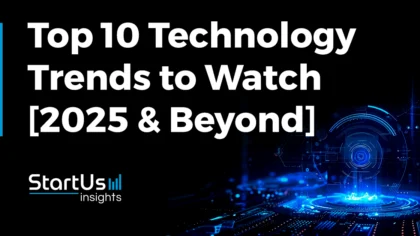
Frequently Asked Questions
Q1: How important is AI for businesses in 2025?
A1: AI is projected to be critically important. It’s not just a standalone trend but a foundational technology that powers many other advancements. From agentic AI’s autonomous capabilities to generative AI’s creative output, AI will reshape operations, decision-making, and competitive strategies. Businesses that fail to integrate AI will likely fall behind.
Q2: What does “Phygital Convergence” mean for customer experience?
A2: Phygital convergence means blending physical and digital experiences to create a seamless and enhanced customer journey. For example, a customer might use a mobile app to interact with a physical store, receive personalized offers based on their online behavior, or engage with AR overlays in a retail space. This creates richer, more convenient, and engaging interactions.
Q3: How can businesses prepare for the trend of hyperautomation?
A3: Preparing for hyperautomation involves identifying repetitive, complex processes that can be automated. Businesses should invest in understanding AI, machine learning, and RPA technologies, and foster a culture that embraces automation. It’s also crucial to ensure data quality and governance, as these are foundational for intelligent automation.
Q4: What role does sustainability tech play in the 2025 tech landscape?
A4: Sustainability tech is moving from a niche area to a mainstream imperative. Businesses are adopting technologies to reduce their environmental impact, improve energy efficiency, and enhance supply chain transparency. This is driven by regulatory pressure, consumer demand, and investor expectations, making it a key factor for brand reputation and long-term viability.
Q5: Are 5G and 6G just about faster mobile internet?
A5: No, 5G and 6G are foundational for a connected ecosystem. Beyond faster speeds, they offer lower latency, higher bandwidth, and the ability to connect a massive number of devices simultaneously. This is crucial for the growth of IoT, real-time analytics, autonomous systems, smart cities, and advanced immersive experiences.
Q6: How can businesses ensure robust cybersecurity in the face of evolving threats?
A6: Cybersecurity needs to be a proactive, strategic imperative. Businesses should adopt a multi-layered approach, including advanced threat detection, AI-powered security solutions like digital immune systems, regular security audits, and comprehensive employee training. Investing in robust security infrastructure is non-negotiable.
Q7: What is the significance of “data mastery” for businesses?
A7: Data mastery involves not just collecting data but understanding how to manage, protect, and leverage it effectively. This includes ensuring data privacy and governance, developing strategies for first-party data, and using AI and analytics to extract actionable insights. In an era of increasing data regulation and consumer awareness, data mastery is key to trust and competitive advantage.
Q8: What is agentic AI?
A8: Agentic AI refers to AI systems that can autonomously pursue goals. Instead of just executing commands, these agents can identify objectives, strategize, take actions, and learn from their outcomes without constant human oversight. This represents a significant leap towards more independent and intelligent AI applications.
Q9: How do specialized semiconductors contribute to technological advancements?
A9: Application-specific semiconductors, particularly those designed for AI workloads, offer superior performance and energy efficiency compared to general-purpose chips. They enable the deployment of more complex AI models and specialized computational tasks, driving innovation in areas like advanced computing, AI research, and high-performance applications.
Q10: What is the overarching advice for businesses regarding technology adoption in 2025?
A10: The overarching advice is to be agile, strategic, and proactive. Businesses must embrace innovation, prioritize investments in key areas like AI and automation, foster a culture of experimentation, and ensure their technology adoption aligns with their overall business and sustainability goals. Continuous learning and adaptation are essential.


